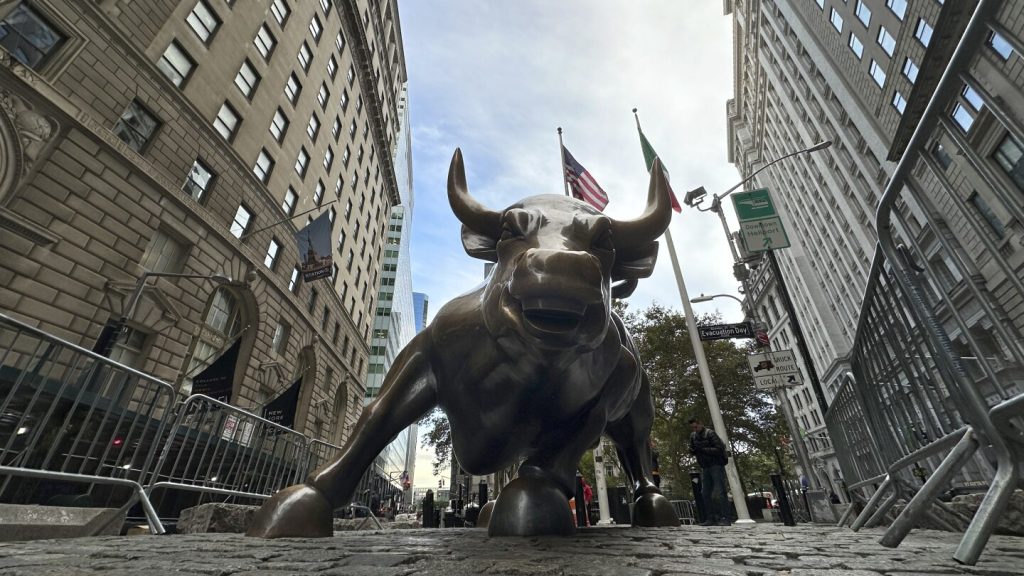Wall Street experienced a pullback from its recent records on Tuesday as the price of crude oil dropped, causing technology stocks to falter. The S&P 500 fell 0.8%, the Dow Jones Industrial Average dropped by 324 points, or 0.8%, and the Nasdaq composite sank 1%. Exxon Mobil saw a 3% decrease, and energy stocks suffered sharp losses following a more than 4% decline in oil prices. The fall in oil prices can be attributed to concerns about weakening demand due to China’s slowing economic growth, as well as a decrease in worries about potential Israeli attacks on Iranian oil facilities.
Nvidia, a chip company, was a significant weight on the S&P 500 as its stock fell by 4.5%. Despite this decline, the stock is still up 166.2% for the year, riding on the euphoria surrounding artificial intelligence technology. Stocks across the chip industry also saw a decline after Dutch supplier ASML reported its quarterly results, with its stock trading in the U.S. falling by 16.3%. UnitedHealth Group, despite reporting better results than expected for the latest quarter, saw its stock drop by 8.1% and lowered its profit forecast for the full year. However, several financial companies, such as Charles Schwab and Bank of America, saw gains following better-than-expected profit reports for the summer.
In the bond market, trading of Treasurys resumed after a holiday, with yields falling following a weaker-than-expected manufacturing report from New York state. The yield on the 10-year Treasury dropped to 4.03% from 4.10%. The Federal Reserve has begun cutting interest rates to focus on keeping the economy humming, leading to optimism about a continued strong U.S. economy. Strategists at UBS raised their forecast for the S&P 500, predicting a rise to 5,850 by the end of the year, up from their previous forecast of 5,600. The S&P 500 closed at 5,815.26 on Tuesday.
Stock markets outside the U.S. also experienced fluctuations, with Chinese stocks falling as doubts persist about the government’s ability to provide enough fiscal stimulus for the economy. Stocks in Shanghai fell by 2.5% and Hong Kong’s Hang Seng index dropped by 3.7%. Elsewhere in Asia and Europe, indexes showed mixed results. Despite the fluctuations, the market continues to remain optimistic about the U.S. economy’s growth and the potential boost that lower rates could offer to corporate profits and stock prices. Investors are keeping a close eye on economic indicators and central bank policies to gauge the market’s direction in the coming months.















